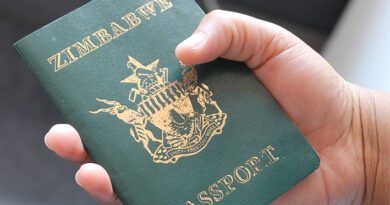Road safety: ZRP finally rolls out breathalysers to arrest drunk drivers
THE Zimbabwe Republic Police will begin to deploy breathalysers and speed trap cameras on major highways this weekend in a major development that is expected to curb drunk driving and speeding on the roads.
Deployment of the high-tech equipment comes ahead of the festive season holidays, when road accidents traditionally increase as a result of high traffic volumes on the roads, alcohol abuse, fatigue and reckless driving.
The rollout will also mark the first large-scale use of modern and high-tech road-safety enforcement technology in the country and will be supported by a new fleet of operational vehicles for the Vehicle Inspectorate Department (VID), expected to be unveiled later this week.
The vehicles are expected to strengthen roadside inspections, enforce vehicle fitness regulations and support joint law-enforcement operations.
Transport and Infrastructural Development Minister Felix Mhona told The Herald that the Traffic Safety Council of Zimbabwe (TSCZ), working with the police, had finalised the procurement and technical specifications of breathalysers and speed cameras.
The equipment, he said, will help authorities clamp down on drivers who violate speed limits and drive under the influence of alcohol — two of the leading causes of fatal crashes on Zimbabwe’s roads.
“These measures will strengthen a culture of road discipline, reduce accidents and enhance public safety across the transport network,” said Minister Mhona.
“Road safety in Zimbabwe remains a critical concern, with rising incidents of road crashes affecting lives and livelihoods.”
A breathalyser is a scientific device used to measure the amount of alcohol in a person’s breath.
When a driver blows into the device, the breath sample is analysed to estimate the concentration of alcohol in the bloodstream. If the reading exceeds the legal limit, the driver is deemed unfit to drive.
Breathalysers provide quick, accurate and legally admissible results, preventing disputes and enabling police to enforce the law effectively.
In the absence of breathalysers, officers often rely on subjective assessment, checking for slurred speech, unsteady movement, strong alcohol smell or erratic driving.
These indicators, however, are not scientifically precise and can be challenged in court, often weakening prosecutions.
Under the Road Traffic Act, driving with excess alcohol in the blood or driving while under the influence of alcohol or drugs is a serious criminal offence that carries heavy penalties, including fines, imprisonment and mandatory driving bans.
The law states that any person who drives or attempts to drive a vehicle with a blood alcohol concentration of 80 milligrammes or more per 100 millilitres of blood commits an offence.
A driver found guilty faces a fine of up to level 10, imprisonment for up to five years, or both.
The penalties are even harsher for commuter omnibus and heavy-vehicle drivers, who can be jailed for between one and 10 years.
Minister Mhona said Government had elevated road safety to a national development priority aligned with the SADC Road Safety Action Plan, United Nations Decade of Action for Road Safety, and the National Development Strategy 1 (NDS1), soon transitioning to NDS2.
He said targeted interventions are being implemented through partnerships with key agencies, including the procurement of evidential breathalysers and printers already handed over to the ZRP.
“Over 94 percent of road accidents in Zimbabwe are attributed to human error,” Minister Mhona said.
“In response, TSCZ has partnered with State institutions to implement targeted interventions, including the procurement of evidential breathalysers and breathalyser printers; and rollout and handover to ZRP.”
The Government is also working on legislation to establish a Road Accident Fund, with Cabinet already approving guiding principles.
In addition, plans are underway to transform the TSCZ from a promotional body into a fully-fledged Road Traffic Safety Agency with powers to arrest, issue tickets, investigate accidents and recommend systemic improvements.
Meanwhile, police have urged motorists to exercise maximum caution and comply with traffic laws during the festive season.
National police spokesperson Commissioner Paul Nyathi warned against speeding, use of unroadworthy vehicles and dangerous driving.
“Drivers are encouraged to inspect the condition of their vehicle tyres, including the spare wheel, to ensure that they are in good condition and properly inflated to avoid road accidents,” he said in a statement.
“Drivers should also check that windscreen wipers are functioning effectively, especially during the rainy season, to maintain clear visibility.
“Additionally, any cracked or broken wind screens should be promptly repaired or replaced, as they can significantly impair vision and increase the risk of accidents.”
Comm Nyathi also warned drivers against attempting to cross flooded bridges and urged public transport passengers to report reckless driving.
“Above all, it is in the interest of road safety for all vehicles to be regularly serviced and certified fit to be travelling on the roads.
“Road safety is a collective responsibility of all Zimbabweans.”




